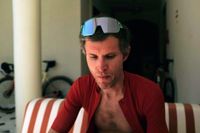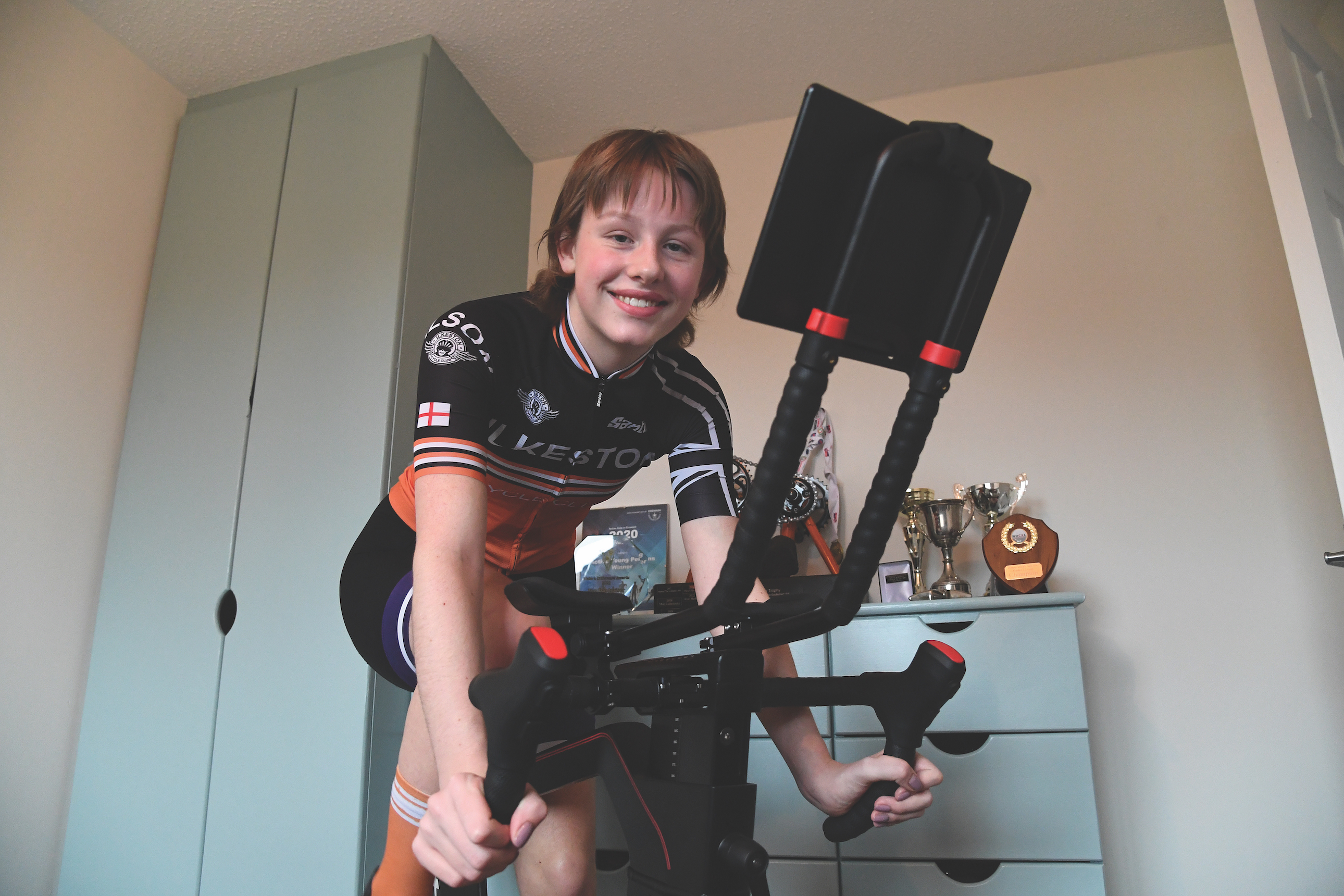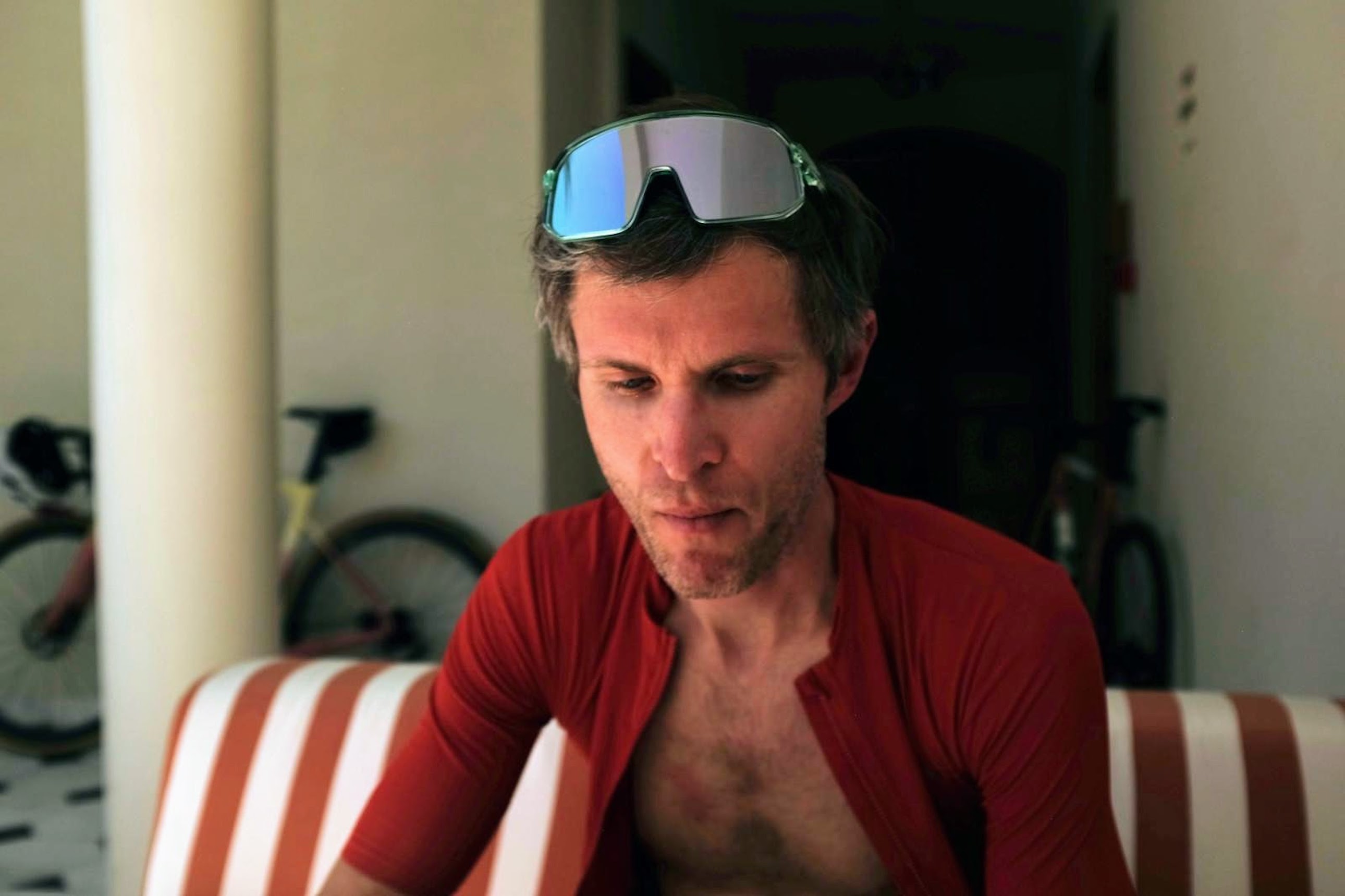'Cycling has kept me going': The teen racer pedalling to keep her spirits up during brain tumour treatment
When young racer Evie Hartley noticed a problem with her vision early last year, she could not have anticipated the monumental health battle ahead of her


The latest race content, interviews, features, reviews and expert buying guides, direct to your inbox!
You are now subscribed
Your newsletter sign-up was successful
"Six months after I’d started cycling, the cyclo-cross season was just beginning, so I thought, why not give it a go?” That would be a brave leap into the unknown at any age, but Evie Hartley – who was just nine at the time – isn’t talking about bravery. She is simply telling me how cycling came to form a central part of her life. “I raced the first season and I came third out of the girls, so that was pretty decent,” she grins. “The next year I won the season.”
Evie, now 13, is sitting alongside her dad Dave, speaking to me by video call from their home in Ilkeston, Derbyshire. We are here to speak about how Evie has been coping since a life-changing diagnosis last year, and at the outset I’m nervous about asking questions that might be upsetting for her to answer. As soon as the subject is broached, my worries evaporate. “Basically, I started to lose vision in my left eye,” she explains matter-of-factly, recalling the early symptoms from January 2021. “We went to the optician, who sent me to a specialist, and from there I had the MRI scans which found the tumour.” The calm, intelligent way the youngster recounts this terrifying chain of events is not just impressive, it’s humbling.
The scans identified a large tumour in the centre of Evie’s brain, too deeply embedded to remove surgically. Doctors faced a complex set of challenges, and their first priority was to relieve pressure on the optic nerve to save Evie’s sight. Dave is full of praise for the specialist care provided from day one. “The dedicated NHS team under Professor Richard Grundy have been incredible,” he says. “In the first few months, the treatment was properly aggressive – a long stay in hospital with intense, high-dose chemo, but after every dose, Evie bounced back.” It was a level of resilience doctors had rarely witnessed – and Dave is certain that Evie’s cycling background played an important part. “All her base levels of fitness were in good shape, and she’s got deep resolve anyway – those two factors together definitely made a difference.”
The previous year, despite Covid putting a pause on racing, Evie had maintained her fitness, in large part by riding with her grandad Paul Hartley. “Other than one bad headache in August, I felt completely normal,” she remembers, “and was doing loads on the bike – during lockdown me and my grandad did over 2,000 miles.” The base miles stood her in good stead in ways no one could have imagined.
The initial intensive spell of treatment left the 13-year-old feeling wiped out and unable to exercise for weeks at a time. Then there was another unwelcome side-effect. “Most of my hair fell out pretty much straight away,” says Evie. “Whatever was left, I cut off and donated.” It’s testament to her character that amid such personal trauma she was already thinking about ways to put her experience to positive use.
“In total, including all cancers affecting children, there are 1,800 cases a year,” Evie explains the motivation behind her fundraising, “so it’s super-rare, especially brain tumours, and the first treatment I was on was 35 years old. I thought, there must be a kinder way – funding that research was something I really wanted to do.” Dave is chairman of Ilkeston CC, and many club members immediately got on board with Evie’s fundraising (see box). Collectively, they have raised in excess of £50,000 – and counting – for the Children’s Cancer and Leukaemia Group (CCLG). “According to the charity, that’s almost enough to fund a whole new project,” adds Dave. He pays tribute to the support of local cyclists. “Honestly, the cycling community has been amazing – I can’t think of another community I’d rather be part of… Not only our club, all the clubs in the region, everyone has got behind us, and we can’t thank them enough.”
After the first three months of treatment, Evie’s chemo doses were dialled down and she began to feel better. How long before she was back on the turbo? “Pretty much straight away,” Evie laughs, “and now I’m on the Wattbike practically every day.” Though most of her riding has been indoors, she did venture outside last summer and even felt well enough to compete in a few races. “I did one crit race, plus a few hill-climbs and TTs,” she says, “as those were the only events not cancelled because of Covid.” So far doctors have raised no objections to Evie’s cycling, and the morale-boosting effects could not be clearer. “It’s been the thing that’s kept me going,” says the young racer, “and it’s the one thing I’ve been in control of – something I knew I could do as and when I wanted, and that’s felt really good.”
The latest race content, interviews, features, reviews and expert buying guides, direct to your inbox!
'There was never any doubt Ilkeston would unite in support'
Fellow Ilkeston CC member Emma Pilgrim, who took a lead role in the club’s fundraising efforts, takes up the story:
“Evie is such a valued member of Ilkeston Cycle Club (ICC), and the Hartley name runs through the club’s core. There was never any doubt that we were going to support Evie and the family by fundraising for a charity of their choice. It was a small way to show them that the whole club is with them on this journey.
“Once CCLG [Children’s Cancer and Leukaemia Group] were selected, I set up a JustGiving page (bit.ly/3rnSp22) and within 24 hours we were absolutely blown away by the response. It became apparent very quickly that the first target of £5,000 would be met and the donations kept coming in. We then announced the ‘How Far For Evie’ concept, and the level of support was overwhelming – as were the challenges people were willing to put themselves through! It didn’t stop there; the generosity continued during our auction event, where amazing gifts and experiences were donated and the bids placed on the day – once again, it left us lost for words.
“This hasn’t only been a club effort, the whole of Ilkeston and the wider cycling community have shown their support for the family, and we’re very thankful.”
An additional boost to morale came in April when Evie found herself on a virtual ride with none other than her favourite racer Geraint Thomas. “I only found out about it a couple of weeks before I was due home from hospital,” says Evie. “It was incredible – definitely one of my highlights.” A clip of the meeting, tweeted by Ineos Grenadiers, shows Thomas casually chatting with Evie via video link, offering advice on how to become a pro rider. “I reminded her afterwards that this doesn’t mean you have to follow his path in terms of the amount of crashes,” jokes Dave. Then again, maybe it’s only half-joke, given Evie’s ambitions. “Eventually, when I’m older,” she says in total seriousness, “I want to ride the Tour de France.” I’m making encouraging noises before I realise Evie hasn’t finished her sentence, “–and I want to win it.” And win she will, if the courage she has shown so far is anything to go by.
Last year the relentless cycles of treatment meant that Evie was off school for the best part of eight months. What was it like finally walking back into the classroom in August? “Very daunting because at that point I was still fully bald,” she says, “and I’d just had brain surgery [for a biopsy], so I put a hat on. But it was fine. Everyone was scared to ask questions at first but once I started to make jokes – I probably shouldn’t – they realised I was relaxed so they relaxed too.” Once again I’m taken aback – how does she remain so calm and considerate? “It has been difficult at times, I’m not going to lie about that,” she says, and momentarily the smile disappears, “but you kind of just have to get through it, so I’d rather be chilled about it because there’s nothing I can do to change it.”
The long-term outlook for Evie is positive: although the tumour has metastasised to her spine, the oncologists treating her are confident that the main battle, shrinking the original tumour, is being won and that this is key to arresting the spread and achieving a state of remission. “The prognosis is extremely good for Evie,” Dave later clarifies by email, “she should live a long and normal life.” Evie is not yet out of the woods, of course, with her chemo programme set to continue for a further 11 months – but even in that she sees the bright side. “It’s actually quite lucky, though,” she chirps, “because I should finish in November – just in time for the cyclo-cross season!”
This article was originally published in the 10 February 2022 print edition of Cycling Weekly. Subscribe online and get the magazine delivered direct to your door every week.

David Bradford is senior editor of Cycling Weekly's print edition, and has been writing and editing professionally for 20 years. His work has appeared in national newspapers and magazines including the Independent, the Guardian, the Times, the Irish Times, Vice.com and Runner’s World. Alongside his love of cycling, David is a long-distance runner with a marathon personal best of 2hr 28min. Diagnosed with retinitis pigmentosa (RP) in 2006, he also writes personal essays exploring sight loss, place, nature and social history. His essay 'Undertow' was published in the anthology Going to Ground (Little Toller, 2024). Follow on Bluesky: dbfreelance.co.uk